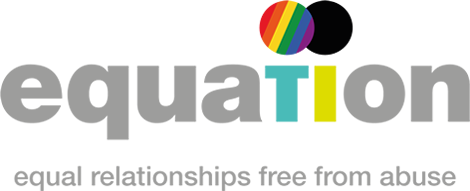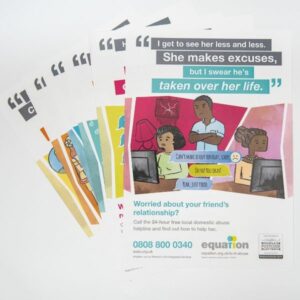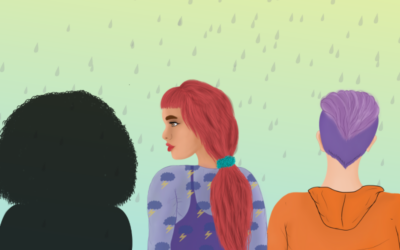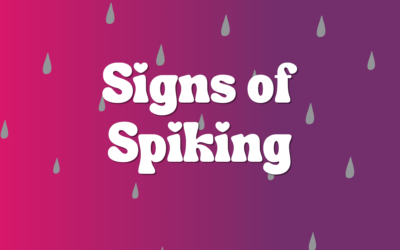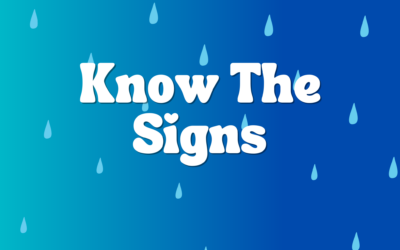Help a friend
Good friends are everything.
But sometimes our closest friends can be experiencing domestic abuse in silence.
While you may not think you know anyone experiencing domestic abuse it is often well hidden. With 1 in 4 women experiencing abuse as well as many men, trans and non-binary gendered people, it is highly possible someone we care about may come to us for support, especially now.
Helping a friend in an abusive relationship can be really tough for you as well as them. Abuse is often very complex to both identify and navigate safely. It’s likely to require responses from you that aren’t going to be your first instinct. But don’t worry, we’re here to help.
Be the best friend you can be – by being prepared.
Do you need help?
Local domestic abuse services are ready to support you and your friend. Calling a helpline is not the same as reporting to the police, and support is provided confidentially.
4 steps to take to help a friend
1 … Learn to spot the signs of domestic abuse
It can be hard for someone experiencing abuse to tell anyone. However, there are things friends and family can see if they know what to look for. Six common signs that someone you know might be experiencing abuse from their partner are Isolation, manipulation, control, fear, pressure and jealousy. Watch the videos below or read our helpful blog ‘How to spot the signs of a friend in trouble’ for more information.
Control
Pressure
Isolation
Jealousy
Manipulation
Fear
Top Tip!
There’s a lot of information to remember on this page. If you can, bookmark it on your phone so you can refer to it whenever or wherever you are when someone needs help. It might not be safe for your friend bookmark any pages about domestic abuse because their devices might be monitored by the person hurting them.
2 … Learn the right things to say when someone tells you they’re experiencing abuse
Remember these four things to tell your friend!
"I'm sorry to hear that"
Show your friend you believe them, and that you care. You might be shocked by the things you’ve been told, especially if you know the person hurting them. But remember, anyone can abuse or be abused, no matter how they seem on the face of it.
Why it’s important to say
Your friend is being bullied and hurt, so they probably feel low. You could be the first person they’ve ever told, and they might feel alone and scared. If you are caring, your friend knows that at least one person has their best interests at heart. Your positive response will support them to cope with the situation.
“Thank you for telling me”
Let your friend know they’ve made a brave and positive decision to talk to someone. Don’t push for details unless your friend wants to tell you. Be trustworthy: reassure them you won’t share information about the abuse with anyone else without their permission, unless it’s an emergency.
Why it’s important to say
There are many reasons why people experiencing abuse don’t feel able to speak out about it. A big one is fear of being judged or not believed. By reassuring your friend they’re doing the right thing, you’ll help reduce that fear, and build their confidence to ask for further help from others.
“It’s not your fault”
Be very clear: tell your friend that what’s happening to them is wrong and they’re not to blame. Nothing your friend has done or said makes it okay to be abused. If the abuser drinks or is using drugs, has stress, depression, or anger problems, or had a bad childhood, this does not justify their behavior. Abuse is the responsibility of the abuser.
Why it’s important to say
Often a person who is being abusive blames the victim or makes excuses, so your friend could fear what others think or blame themselves. Their self-esteem is probably quite low as a result of abuse. By telling your friend they’ve done nothing wrong, you’ll help to reduce their anxiety and also build their self-confidence to get further help.
“How can I help you?”
Ask your friend what they need. Let them know they can contact the local domestic abuse helpline to talk about their situation and get free, confidential advice. Help them store the number somewhere safe: 0808 800 0340 for women, 0115 960 5556 for men. Do not pressure them to leave. Try and be understanding if they’re not ready and let them know you’ll be there for them, whatever they decide.
Why it’s important to say
Your friend needs to know that help is available, but they might not be ready to take action. They may feel stressed, afraid, and exhausted. They might still love their partner or believe they’ll change. If you pressure your friend to do anything they don’t want to then they’ll only feel worse, and might pull away from all support.
If they can be in control of their own decisions, they’ll be more likely to access help and make changes that last.
Top Tip!
It’s not your job to convince your friend to leave the relationship. Leaving is never as simple as just walking away. It can take months or years, and it’s common for people to leave but then go back several times. Be prepared for this, and don’t give up hope. Your friend is most likely to leave and not return if the decision is truly theirs. In the meantime, keep in touch and be understanding.
3 … Brush up on safety tips
People who abuse can be dangerous, so think of safety first and don’t put yourself or your friend at risk.
Remember these 3 things:
- Don’t ever confront the abuser. This might not only be dangerous for yourself, but the chances are high it could make the abuse worse for your friend.
- Try and talk to your friend face-to-face and in private. Remember that their social media, phone, and emails might be monitored so sending text abuse the abuse might not be safe. Ask your friend the safest ways to keep in touch.
- Google ‘domestic abuse safety planning’ and offer to help them make a plan for their safety.
Top Tip!
Offer suggestions, not orders. Your friend might not always listen and they may make decisions that you don’t think are in their best interest. This can be upsetting, but avoid criticising them and keep your door open
4 … Call the pros for help
Calling a Helpline might feel like a big step or like you’re betraying your friend’s trust, but domestic abuse is often complex and difficult to navigate safely without expert advice. By calling a helpline and discussing your friend’s case anonymously, you’ll be given guidance and advice to best support your friend and help keep them safer.
“I don’t need to call because they’re going to leave the relationship.”
Deciding to leave an unhealthy relationship is quite often the most dangerous time. The person harming your friend is likely to become more violent and a safe exit plan is vital.
Top Tip!
Anyone in immediate danger should call 999. The police continue to respond to calls about domestic abuse throughout lockdown and if you can’t speak when you call you can use the silent solution.
Where to get help
Help for men
Help for women
Help for children
Further Information
For more information abuse domestic abuse and how to help keep your friend safe, visit the links below.
Is it abuse?
Learn more about domestic abuse
Ways to support the Help A Friend campaign
Make a donation
With your help we could do even more with our campaigns such as running them more times a year, reaching more people, and refreshing content to keep it current.
Latest news from Help a Friend
Worried about your friend’s relationship?
Worried about a friend? Good friends are everything. But sometimes our closest friends can be suffering in silence With 1 in 4 women experiencing domestic abuse as well as many men, trans and non-binary gendered people, it is likely we know at least one person...
Signs of Spiking and how to #HelpAFriend
Good friends know each other inside and out. While the signs of spiking can be similar to being drunk, there are things friends can see if you know what to look for. If your friend seems more drunk than normal for drinking the usual amount, check for...
Know their game: Common date rape tactics and how to spot them.
People who commit date rape use tactics that are subtle and can be cloaked as charm. Knowing the signs and how to #HelpAFriend, can help stop harm in it’s tracks. Remember these 5 signs: 1. Demonstrating power through status or connections Date rapists...
How you can help
No matter how much time, money or resources you can afford to give, your support will make a difference.
£10
Give monthly
Could pay for four children
to take part in our early intervention projects
£30
Give once
Could pay for one primary school child to receive our healthy relationship education program
Support equation
Check out the other ways you can support us
